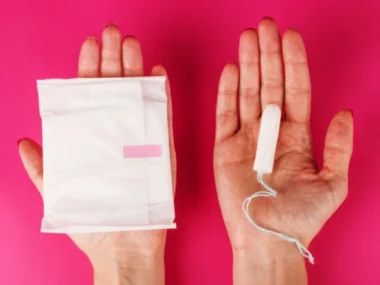I recognize that you could have read something on TikTok about using boric acid suppositories to treat some kinds of vaginal infections. These suppositories can be helpful in some situations, but it’s important to use caution and only use them for the specified amount of time. Long-term usage of boric acid suppositories may disturb the normal bacterial balance in the vagina, which may result in unpleasant vaginal odor and discomfort.
Ob-gyns and other medical professionals have long suggested using boric acid suppositories to treat persistent or recurrent vaginal conditions like yeast infections and bacterial vaginosis (BV).
The idea that these pills are a must-try miraculous cure that can handle everything from managing vaginal odor and discomfort to healing vaginal dryness and leaving you feeling fresh down there all day has recently been promoted by certain TikTok influencers.
Is this a creative idea or a potential medical crisis? Here are the opinions of experts on this social media craze. While using boric acid suppositories under medical supervision and with caution is advised, they can be helpful for treating some infections.
They can cause imbalances in the vaginal flora and may result in vaginal discomfort or irritation if used improperly or in excess of the dosage. Before taking any vaginal therapy, it is imperative to speak with a medical practitioner to ensure accurate assessment and safe usage. If there is an underlying, more serious issue, self-diagnosing and self-treating based on social media trends might be dangerous and delay necessary medical assistance.
Should You Adhere to This Boric Acid As A Cure All Advice?
There is categorically no evidence to back up the claims made in TikTok videos that boric acid suppositories are useful at treating various vaginal symptoms or conditions, according to medical professionals. On the other hand, if these suppositories are used without the correct medical supervision, it may have a negative impact on the vagina.
Natural protection for the vagina is greatly influenced by the delicate balance of the vaginal bacterial flora. Any type of vaginal cleansing has the potential to upset this delicate balance and raise the danger of vaginal injuries, infections, and vaginitis. It’s critical to speak with a doctor who specializes in vaginal healthcare if you’re having problems with your vagina.
A lot of personal care items that claim to “balance out yeast” and “eliminate odor”
are also not subject to U.S. Food and Drug Administration regulation. Since the vagina is essentially self-cleansing and has the innate ability to maintain its pH balance and give all-day freshness, there is no need to rely on these items.
Vaginal Symptoms That Need Medical Attention
According to Dr. Jen Villavicencio, MD, lead for equity transformation at the American College of Obstetricians and Gynecologists (ACOG), “It is imperative to seek the advice of a healthcare provider who can accurately diagnose the problem and recommend appropriate treatment if someone is experiencing unusual vaginal symptoms, such as itching, increased discharge, or a new odor.”
She emphasizes that only water or unscented soaps for external use are advised for routine vulvar care.
The importance of early diagnosis and treatment cannot be overstated.
Untreated vaginal infections that produce an odor or itching might result in serious side effects like pelvic inflammatory disease (PID) or infertility. To ensure correct care and avoid any long-term health complications, seeking competent medical help is imperative.
What Are Boric Acid Suppositories?
While boric acid suppositories have been in use for many years, TikTok videos’ popularity and associated claims are relatively new. Boric acid, a white powder made from the element boron, is useful for treating fungus, bacteria, and viruses.
Insecticides, home cleansers, and laundry stain removers all frequently contain it.
Boric acid is acceptable to use in the vagina when treating bacteria or fungi, but it should never be taken orally because it can be hazardous.
These suppositories are appealing since they are straightforward and inexpensive. Because it is well tolerated, boric acid enables users to self-treat without a prescription or a trip to the doctor. To guarantee safe use, it is necessary to use caution and to refrain from oral ingestion.
What Conditions Can Boric Acid Suppositories Safely Treat?
Boric acid suppositories are not thought to be harmful to the vagina when used as prescribed and for a problem that has been appropriately identified. They can be helpful in relieving symptoms like burning and itching caused by specific vaginal infections, especially those caused by less prevalent fungal strains.
Boric acid suppositories can be helpful, but it’s crucial to remember that they might not work as quickly or offer the same amount of symptom relief as prescription medications or more specialized over-the-counter (OTC) inserts.
Consulting a healthcare professional and adhering to their advice are essential for the best outcomes in situations where immediate relief or focused treatment is needed
Vaginal Yeast Infections (Candidiasis)
Boric acid has proven to be an effective therapy for managing recurring vaginal
yeast infections or infections caused by atypical yeast species like Candida glabrata or Candida tropicalis, as stated by the Department of Obstetrics and Gynecology at the University of Washington. However, it’s worth noting that the majority of yeast infections are caused by a different species called Candida albicans.
To treat a recurrent yeast infection, a common approach is to place one boric
acid capsule in the vagina nightly before bed for two weeks or as advised by a healthcare provider. This treatment method is safe and not harmful to the vagina when used specifically for yeast infection treatment. Nevertheless, it is essential to emphasize that boric acid capsules should never be taken orally.
Moreover, research published in Frontiers In Immunology indicated that 5 percent boric acid gels may also be an effective treatment option, according to an animal study. However, it’s important to consult with a healthcare professional to determine the most appropriate and safe treatment plan for individual cases ofyeast infections.
Bacterial Vaginosis (BV)
Although its use in treating yeast infections has received more research, boric acid has shown promise in treating recurring bacterial vaginosis, especially when combined with other treatments. In 92 out of 93 patients who were enrolled in the trial, symptoms were reported to have improved when boric acid was combined with 500 mg of nitroimidazole, a popular antibiotic used to treat infections, according to a study published in the journal Sexually Transmitted Diseases.
Use of Boric Acid Suppositories Recommendations
Unquestionably, it’s important to be cautious and refrain from using boric acid suppositories when pregnant. Boric acid suppositories shouldn’t be used by pregnant people since they pose dangers to the fetus in development and are therefore not recommended during pregnancy.
Moreover, if a person has any of the following conditions or circumstances, they
should always speak to their doctor before considering using boric acid
suppositories:
● Pregnancy or planning to become pregnant
● Breastfeeding
● Allergies to boric acid or any other ingredients in the suppositories
● Open sores, wounds, or broken skin in or around the vaginal area
● History of kidney problems or impaired kidney function
● Severe vaginal irritation or inflammation
● Immune system disorders
● Current use of other vaginal medications or treatments
● Diabetes
● HIV/AIDS
It is crucial to discuss any potential risks or concerns with a healthcare professional before using boric acid suppositories or any other vaginal treatment to ensure safe and appropriate care.
Concerned About Vaginal Symptoms or Your Vaginal Health?
It is essential to make an in-person or telehealth consultation with your obstetrician-gynecologist (ob-gyn) or another healthcare professional if you are having symptoms like burning or itching that could be a symptom of a yeast infection or bacterial vaginosis (BV). Getting expert medical guidance will guarantee accurate diagnosis and suitable treatment.
If finding an ob-gyn is difficult, look into telemedicine options. Women can access
the telemedicine services provided by Planned Parenthood through their website
or mobile app for free or at a reasonable cost. These telemedicine solutions can offer quick and easy access to healthcare consultations, allowing you to talk with a competent healthcare professional about your symptoms and get the right support and treatment suggestions. Keep in mind that to maintain general wellbeing and avoid any complications, it is crucial to address vaginal health concerns as soon as they arise with the assistance of a healthcare practitioner.
The Benefits of Reliable Sources vs. the Risks of Medical Misinformation
Without a doubt, TikTok videos and social media content in general should never be used as a replacement for expert medical advice from licensed healthcare providers. Reliance on unreliable information, misunderstandings about medicine, or other fallacies circulated on social media can be risky and potentially hazardous to one’s health.
The American College of Obstetricians and Gynecologists’ (ACOG) chief for clinical practice, Christopher M. Zahn, MD, highlights the value of finding out information about health issues from dependable and credible sources.
Particularly when it comes to medical advice, just because material is available
online or on social media does not imply that it is accurate or valid. For individualized advice based on sound medical evidence, it is critical to confirm the information from reputable medical sources and consult with licensed healthcare professionals.
Final Thoughts
When assessing health-related information they find online, people should exercise caution and skepticism because the spread of medical misinformation can have catastrophic repercussions. Individuals looking for solutions to their health difficulties can be guaranteed of their safety and wellbeing by relying on evidence-based resources and consulting a qualified medical expert.





